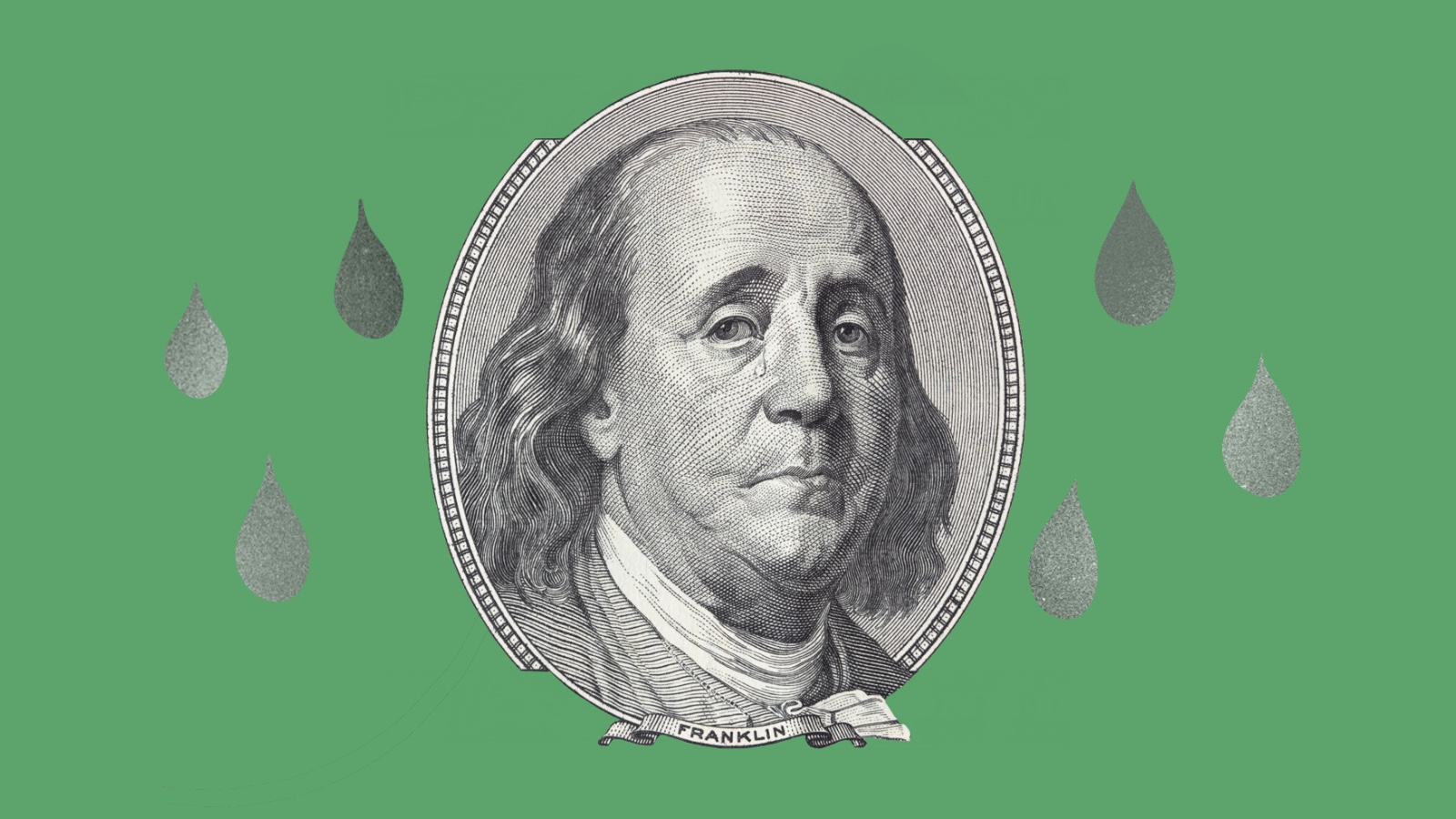The Upside of Anxiety

Immanuel Kant, the 18th-century German metaphysician, believed serenity to be the hallmark characteristic of virtue. A “tranquil mind,” he wrote, is the sign of a virtuous person who has brought “all his capacities and inclinations under his control.” Kant saw morality as action undertaken for the sake of duty, independent of one’s earthly desires: if you are in control of yourself, you will be calm, unperturbed by passion, and radiating peace. If he were alive today, Kant might add: “Om.”
For a contrasting picture, watch any Woody Allen movie. New York neuroticism is the obverse of Kantian tranquility: harried, unsatisfied, anxious, perturbed. A life filled with worry and noise rather than one steeped in calm and virtue.
If this idea fills you with heightened anxiety (“Wait, geez — I’m not only neurotic, but my anxiety is a sign of a lack of virtue?! OMG, I need to ask my therapist about this!”), try to calm down. Charlie Kurth, a philosophy professor at Washington University in St. Louis, suggests in a recent essay at Aeon that tranquility may be overrated, and anxiety unfairly maligned. The conception of “anxiety as a dark and pernicious force” is twisted. “It goes against the grain to say this,” Kurth writes, “but anxiety can be a good thing … it is central to our ability to successfully navigate moral and social life.”
Start with the fruits of fretting in our social lives. Anxiety, Kurth says, “as we ordinarily experience it, is a moderately discomforting response to uncertain threats or dangers … that gets us to do things” to address those very problems. Without the discomfort that accompanies anxiety, we would not be moved to try to smooth over inadvertent slights or to correct awkward turns in our relationships. When we’re anxious, it’s a sign that we are aware of trouble afoot, and seek to take action to fix it.
Even more significant is what Kurth calls “moral anxiety,” or the type of worrying “that can help us to understand what might be the morally correct thing to do.” He gives an example:
Your mother’s Alzheimer’s has advanced dramatically in the past year and you can no longer provide her with the care she needs. You’re inclined to follow her doctor’s recommendation and put her in an elderly care facility. But this decision makes you anxious, and so you start to reflect on the details of the situation that you now face. Your mother was always very concerned about elderly care facilities. In fact, it was only last year, before things really became bad, that you promised her you would never put her in one of those places.
This is no time for chin-up tranquility, Kurth suggests. It’s a time for hand-wringing and maybe even agonizing: fraught, anxious pondering about the right thing to do. He continues:
So you have a serious problem on your hands. Should you put her in a home or not? The question keeps you awake at night. You keep going back to it. This thing that you’re experiencing is definitely a kind of anxiety. But notice how it differs from other situations. … What you are worried about is doing the right thing.
There are, then, two functions of moral anxiety: information and motivation. The discomfort operates “as a signal telling us that we face a difficult moral decision” and then serves as a “motivator that prompts such things as deliberation and information-gathering.” Without something chafing against our easy everyday routine, we aren’t aware there’s a conundrum to address and we have nothing prodding us to address it.
So: three cheers for anxiety? Is your most neurotic friend your most virtuous one? Has Kant been flipped on his head? That does seem to be Kurth’s conclusion. “The anxiety that you feel about whether to break your promise to your mother reflects something admirable about you: a sensitivity to the complexity of moral life,” he writes. “Anyone who didn’t respond as you did would seem morally deficient, like a person who is devoid of anger in the face of a heinous crime.”
Here I feel a little troubled. Ultimately, Kurth’s message promises self-satisfaction while in the throes of self-doubt. When you’re really anxious about a moral quandary, you can be reassured that your anxiety is perfectly placed. More than that, without the worry, you’d be “morally deficient.” Hooray for you! You are anxious; hear you roar. Lesser mortals just walk through life untroubled, but you — you! — wear a badge of anxiety, a troubled mien, a heroically contemplative and furrowed brow.
By giving you this license for self-congratulation, Kurth takes a step away from the point of moral deliberation. He suggests that your ultimate decision matters less than the fact of your hand-wringing: “Even if you do decide that it’s permissible to break your promise and put your mother in a care facility,” Kurth writes, “anxiety has played an important role” in prompting and guiding your decision. That’s true, but it’s trivial. The fact is, Kant builds a kind of “moral anxiety” into his scheme. Without a sense that a moral question has come up in our lives, we would have no reason to turn to the Categorical Imperative as a heuristic for thinking through the correct answer. Tying our shoes or buying soap does not spur an ethical quandary, but keeping promises under troubling circumstances does. Kant knows that just as well as Kurth. But Kant puts his emphasis on how to adjudicate those difficult questions. The idea is that after making a careful, rational decision, we should breathe easy. The calm comes after the storm.
Image credit: Shutterstock.com




